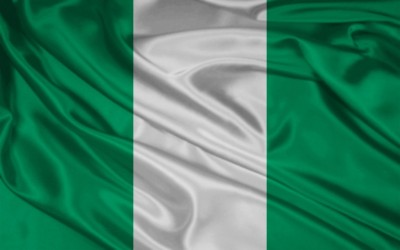
Nigeria’s overdependence on oil is one reality that President Buhari’s government has to grapple with if it will survive the crash in the global oil prices. The good news is that every challenge posed to this administration is a prospect for them to make a change, just as they promised during the presidential campaign.
However, it seems that this government has no clue on how to fix the economy. The incompetence of Buhari’s economic team is instantly apparent as the economic system is on the verge of collapsing; inflation is on the rise, purchasing power is very low, unemployment is high, the country is in gross darkness and it seems like Nigerians have already lost hope in this government.
The best word to depict an economic system led by Buhari and his team without a pattern is to refer to it as “Buharinomy.” To borrow the words of Prof. Utomi, Buhari is indeed operating an “archaic and medieval kind of economic system.”
Despite the pathetic situation of the economy, his economic team has been mum about the present state of affairs. And instead of the president to accept the responsibility of giving direction to the economy, he keeps blaming the immediate past administration for the present economic woes. He forgets the word of the German author Eckhart Tolle that says, “Discontent, blaming, complaining, self-pity cannot serve as a foundation for a good future, no matter how much effort you take.”
There is no basis to compare the Buharinomy and the economy of the past administration because the economic policies of the immediate past administration were direct and had a human face to it.
One technocrat that made a difference in the past administration was the former Minister of Finance and coordinating minister of the economy who helped in charting a cause for the economy. Although the administration had its own challenges, she put policies in place that helped cushion the hardship known to the ordinary man in the country.
Okonjo-Iweala in a bid to help this administration advised the president to concentrate on diversifying the economy, block leakages and rebuild buffers. But they’ve chosen to dismiss her advice with an excuse of fighting corruption.
The government claims it is fighting corruption, thereby leaving the economy to take a downturn. Jonathan’s administration also experienced a shortfall in the nation’s revenue which also resulted from the fall of oil price. But it was quickly addressed by Dr Okonjo-Iweala, thereby, reducing the effect on the economy.
The minister strategically achieved this by opening up Nigeria to the global business community which made the country to be Africa’s number one destination for foreign investors. In the first six months of 2014, a total of US$9.70 billion or N1.51 trillion flowed into the national economy as foreign direct investments (FDI).
This is relative to what this present economic team are doing, instead of working hard to open up the country; they are all singing the same song of blaming the previous administration, without any clue and vision on what to do to move the nation forward.
One year running, this administration has no economic blueprint for the country. However, if the president really wants to diversify the nation’s economy then he should stop being the Minister of Petroleum and become the Minister of Agriculture.
Although Jonathan wasn’t the Minister of Agriculture, he appointed a skilled technocrat that made a difference. As at the end of 2013, the proceeds from Nigeria’s non-oil export rose to 2.97 billion by the end of 2013, up from 2.3 billion in 2010.
I am yet to see the present Minister of Finance Kemi Adeosun chart an economic policy that will curb inflation against the increase in the price of fuel. I’m yet to see Audu Ogeh, the present Minister of Agriculture encourage policies that will inspire the young generation to go into farming. And I’m yet to see where the Nigerian economy is heading.
Nigerians must stand up and call out this government to do the right thing by taking ownership of the challenges. Thereby, finding lasting solutions to the hardship some Nigerians are facing.
Uzoma Ngozi is an entrepreneur and a social commentator who resides in Lagos. Facebook:https://www.facebook.com/uzoma.ngozi.52
END

Be the first to comment